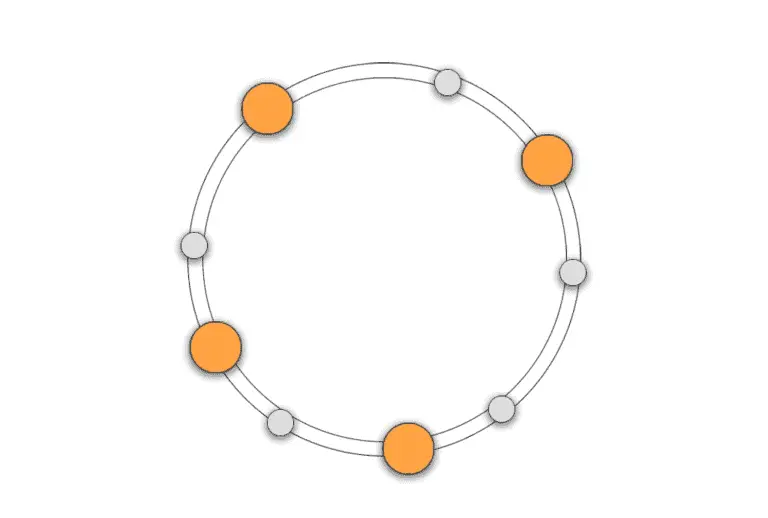How To Pass A Phone Interview: A Guide To Phone Interview Preparation (2023)
A phone interview, often termed a phone screen, is an initial 15 to 30-minute conversation meant to gauge a candidate’s fit for proceeding with a full interview process. They’re important to prepare for because they’re the first step into the full interview process after passing a resume screen.

In this article, we’ll be showing you what to expect when preparing for a phone interview and give you step-by-step instructions on how you pass a phone interview. We’ll achieve this by first explaining what a phone interview is in more detail, providing examples of common phone interview questions that are asked. We’ll also cover whether phone interviews can be technical for software engineers, and how they can prepare for technical phone interviews.
After that, we’ll discuss the step-by-step process to pass a phone interview covering topics such as preparing your interviewing environment, practicing your answers, and researching your company. And lastly, we’ll explain what you should expect after finishing a phone interview. This includes topics such as whether you should send a thank you email, whether you can ask the interviewer for feedback, and how long it takes for a response after a phone interview.
What Is A Phone Interview?
A phone interview (also known as a “phone screen” interview) is a type of interview that is conducted over the phone and lasts approximately 15 to 30 minutes. During a phone interview, you’re asked questions about yourself to see if you’re a candidate match to do a full interview process. Typically, phone interviews are conducted at the earliest stages of the interview process and are intended to be easier than later-round interviews.
The purpose of a phone interview, in this format of interviewing type, is generally to screen out candidates who are clearly not the right fit for a particular position or company based on criteria such as their experience level, intended salary, and career background. This is why phone interview screenings are usually conducted by recruiters instead of leaders like hiring managers who are trying to hire for roles on their specific teams.
What Are Examples Of Phone Interview Questions?
Examples of the types of phone interview questions that are asked during a phone interview are listed below. With each example phone interview question, a description of why it would be asked during a phone interview is also provided.
- Question: Can you describe your current role and main responsibilities?
- Why is this asked during a phone screen?
- This question serves as an introductory prompt for candidates to discuss their current skill set and experience. By understanding a candidate’s present responsibilities, interviewers can quickly gauge if the applicant’s background aligns with the open position.
- Why is this asked during a phone screen?
- Question: What’s motivating you to look for a new opportunity?
- Why is this asked during a phone screen?
- Understanding a candidate’s motivations for job change can provide insight into their career goals, values, and potential longevity at the new company. If a candidate is leaving due to reasons that might also be present in the new job (e.g., seeking a different work culture), it might be a red flag.
- Why is this asked during a phone screen?
- Question: What are your salary expectations?
- Why is this asked during a phone screen?
- It’s often useful to address compensation expectations early on to ensure both the company and the candidate are aligned. If there’s a significant disparity between what the candidate expects and what the company can offer, it’s best to discover this before investing further time and resources in additional interview rounds.
- Why is this asked during a phone screen?
- Question: Are you currently entertaining any other job offers or in the advanced stages of interviewing elsewhere?
- Why is this asked during a phone screen?
- This question helps the company understand the candidate’s timeline and how quickly they might need to move through the interview process. It can also provide insight into the candidate’s demand in the market.
- Why is this asked during a phone screen?
- Question: What is your availability for further interview rounds over the next few weeks?
- Why is this asked during a phone screen?
- Scheduling is a logistical aspect that’s best sorted out early. Understanding a candidate’s availability can help the recruitment team efficiently plan subsequent interviews and ensure there’s no delay in moving forward.
Can Phone Interviews Be Technical?
Yes. Phone interviews can be technical. Technical phone interviews are more likely if you’re applying for a technical role like a software engineer. In a technical phone interview, you’ll be asked to answer technical-related questions that are conceptual. Sometimes, you’ll be expected to code a solution to a technical problem on your computer while being on the phone with your interviewer.
If you’re solving a technical problem by coding on a computer during your phone interview then the interview is a type of coding interview. It’s important that you learn how to pass the phone version of a coding interview because they’re more difficult compared to a standard phone interview.
How Do You Pass A Phone Interview?
You pass a phone interview by doing a mix of preparation before the interview and actions during the interview. Listed below are 5 tips with detailed explanations for passing a phone interview and moving on to the next interview rounds.
1. Prepare Your Interviewing Environment
Preparing your interviewing environment for a phone interview means setting up a quiet place where you can talk to your interviewer, ensuring you have good phone reception, access to job-related documents (i.e., resume and the job description), and something to take notes.
Preparing your interview environment is important for passing a phone interview because it’ll provide you with a less stressful environment in which you can thrive. It’ll allow you to clearly hear and understand your interviewer, and it’ll allow your interviewer to clearly hear and understand you. Additionally, the close access to job-related documents like your resume and an item to take notes will make the interview go more smoothly.
2. Review Your Relevant Work Experience And Achievements
Reviewing your relevant work experience and achievements for a phone interview means recollecting all the memories of your prior work experience that are related to the job you’re applying for.
This is important because the phone interview is typically the first interview in a full interview process. If you fail the phone interview because you’re unable to effectively represent your prior work experience and achievements toward a specific job role, then you’ll be unable to continue into the main interview loop.
3. Practice Your Answers
Practicing your answers means practicing vocalizing the answers to common phone interview questions related to your job role in a concise way. It could be useful to practice answering questions in the STAR format for phone interviews, however, many phone interviews don’t require you to answer with as much context as the STAR interview format would provide.
Practicing to say your answers out loud, as you would during a phone interview, is important because it helps you better represent your qualifications and your experiences clearly and concisely. Doing this provides your interviewer with a better impression of you, as well.
4. Research The Company
Researching the company for a phone interview means understanding the job role your prospective employer has open and what the prospective employer provides in terms of their goods and services. This also includes specifically understanding how your prior work experience aligns with the job role’s responsibilities and qualifications.
When you research the company before a phone interview, you’re able to express genuine interest and commitment to the position during the interview. Understanding the company’s objectives and your role’s relevance helps develop a meaningful conversation during the phone interview. This is especially important for startup companies who value candidates who do this type of due diligence in their research.
5. Listen Actively
Listening actively in a phone interview means allowing your interviewer to explain everything they have to say before trying to answer their questions. If you’re unclear about the meaning of a question, listening actively requires asking follow-up questions for clarification.
Active listening during a phone interview is important because of the importance of understanding questions correctly and providing relevant answers. It also emphasizes your respect and attentiveness to the interviewer, improving the chances of them moving you forward in the interview process.
What Should You Expect After Finishing A Phone Interview?
After finishing a phone interview, you should expect to receive feedback (by phone or email) on whether or not the company is moving forward in the hiring process with you, usually within a couple of weeks.
Assuming that the company is moving forward with you in its interview process, you should expect to schedule more interviews of different types like behavioral interviews, in-person interviews, and remote interviews. If you’re a technical candidate like a software engineer, you’ll have to schedule and prepare for technical interviews like coding interviews and system design interviews.
It’s important to understand that each of these different interview processes has its own ways that you should prepare for them if you want to pass them. For instance, the behavior interview requires to you understand how to answer common behavioral interview questions in a STAR format, and the coding interview for software engineers requires you to understand how to solve coding interview problems in an effective way.
Should You Send A Thank You Email After A Phone Interview?
Yes. You should send a thank you email after a phone interview if you want to improve your chances of getting to the next stages of the interview process. However, this is not necessary if you’re a competitive applicant who is qualified or over-qualified for the job.
If you are sending a thank you email after a phone interview, it’s important to keep it concise, professional, and positive. Make sure to also send it less than 24 hours after the interview, so your interview is still in the interviewer’s memory.
Can You Ask The Interviewer For How Well You Did?
Yes. You can ask the interviewer how well you did, but it’s highly discouraged because there’s a low probability that the interviewer will share specific interview performance information with you for legal reasons. Also, doing this makes you appear as an impatient candidate to wait for the official feedback they’ll give you on whether you’re moving forward in the interview process.
How Long Will It Take For A Response After A Phone Interview?
It usually takes between a couple of days to a couple of weeks to receive a response after a phone interview. This correlates with a company’s size. A larger company will typically take longer to respond because of the large number of candidates they interview compared to a smaller company.
If you have hard deadlines for when you need to finish the interview, make sure that your recruiter or company point-of-contact is aware of them so they can expedite your interview process. If you’re curious about how long a specific company will take to respond back to you after a phone interview, simply ask your recruiter or point of contact (through email or phone) and get a direct answer.
How Long Should You Wait Before Following Up After A Phone Interview?
You should wait at least a week before following up with your recruiter or point of contact for the results of your phone interview. This is the general guideline for following up with any type of interview. It’s called the “one-week rule”. However, your recruiter or point of contact should periodically (every 2 to 3 days) keep you informed about the status of your interview process.







